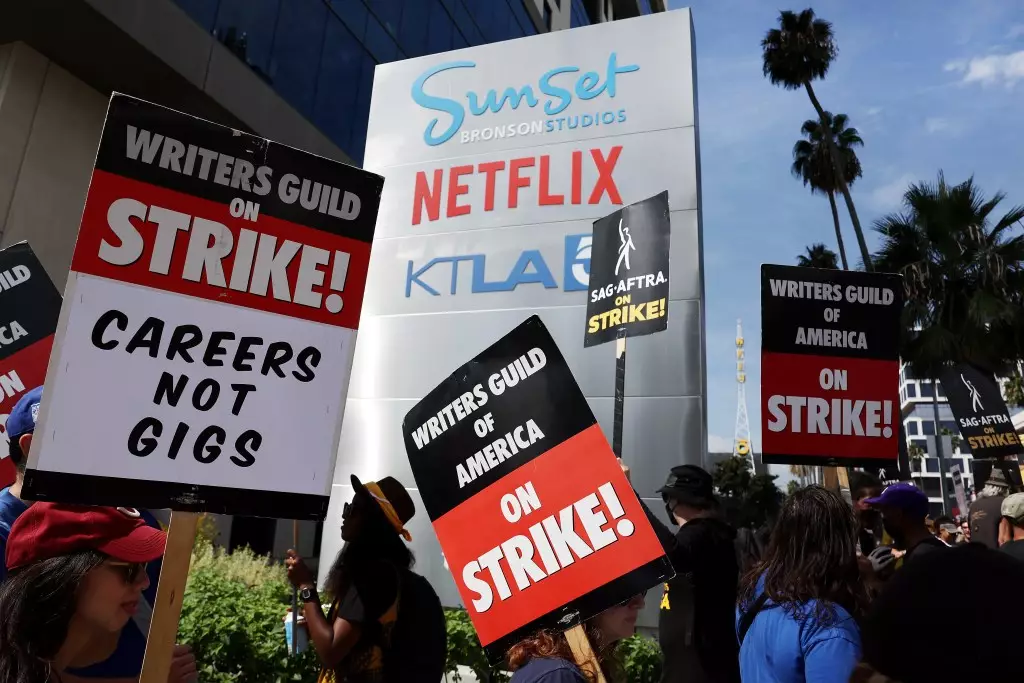In the ever-evolving landscape of television, the toll on writers has become increasingly apparent over the past few years. The Writers Guild of America (WGA) recently disclosed a drastic 42% decline in job opportunities for TV writers in the 2023/24 season, showcasing a sobering reality for an industry already fraught with challenges. The current count stands at just 1,819 writing positions, down from 3,119 the previous year. This alarming reduction raises fundamental questions about the sustainability of a vocation that has long been the backbone of television storytelling.
Writers, often seen merely as the invisible architects of our favorite series, are now confronting a harsh landscape marked by only 1,319 jobs available in the wake of the WGA’s protracted battle for a better contract. The increasing prevalence of executive decision-making driven by financial metrics rather than creativity has further stifled original programming. Streaming platforms, once lauded for their risk-taking, are now wrestling with Wall Street’s pressure for immediate profits, leading to an alarming decrease in new shows.
The Ripple Effect of Industry Strikes
The ramifications of the WGA strike, which lasted an exhausting 148 days, echo powerfully through the industry. This strike, tied for the longest in the guild’s history, has undeniably altered the dynamics of writers’ job security. Showrunners and co-executive producers, vital players in the creative process, saw a staggering loss of 642 jobs, revealing how closely intertwined labor negotiations are with the ability of writers to thrive professionally. Alongside them, mid-level positions—essential for nurturing talent—dwindled dramatically as well, depicting a future where aspiring writers may find their career paths obstructed.
Despite the guild representing over 10,000 writers, the surge in layoffs reflects a troubling trend of dismissive corporate culture within the entertainment industry. Writers are often perceived as dispensable, particularly in a time where creative material can be shelved at a moment’s notice. The drop from 1,508 showrunners and co-executive producers in the 2018/19 season to just 952 the following season starkly captures the precarious situation in which writers find themselves.
A Creative Crisis Ahead
In tandem with the documented decline in writing positions, the wave of cancellations sweeping across various networks underscores the fragility of contributing writers’ livelihood. Popular shows that once anchored programming schedules have abruptly disappeared, reflecting a growing reluctance to invest in high-quality storytelling that takes time to cultivate. This pattern threatens not only current writers but risks dissuading new talent from entering the field entirely.
The overall crisis surrounding television writers points to a broader issue endemic within the entertainment industry: the undervaluation of creativity in favor of rapid financial returns. The resulting landscape is one where the artistry that defines television is at severe risk. It’s imperative to re-evaluate the value placed on original content and recognize the integral role that writers play in not just creating shows but shaping cultural narratives that resonate with audiences. If the industry fails to acknowledge this, the consequences may lead to a dull and uninspiring future devoid of the creativity that has long characterized television.

Leave a Reply